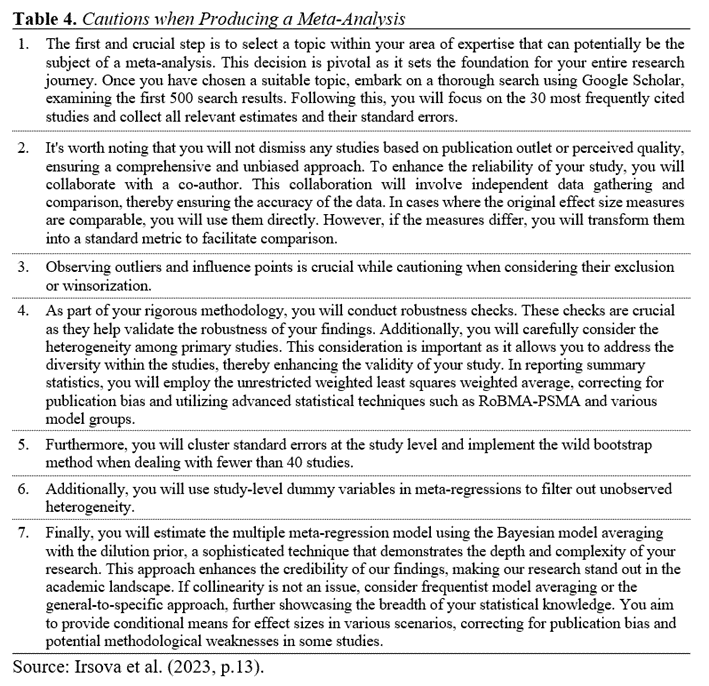Information

In summary, meta-analysis involves several key steps, including formulating the research question, designing a search strategy, screening, and extracting data, critical appraisal and analysis, and reporting and disseminating findings. While it offers a high level of evidence and helps establish recommendations for clinical practice, it is important to be aware of methodological weaknesses and challenges in interpretation. Common challenges and limitations include complexity, bias, and the need for methodological familiarity. Meta-analysis contributes significantly to evidence-based practice by establishing evidence-based practice and synthesizing research findings in various disciplines.
Table 4 contains a checklist you should follow when conducting a meta-analysis to avoid producing irrelevant knowledge.
